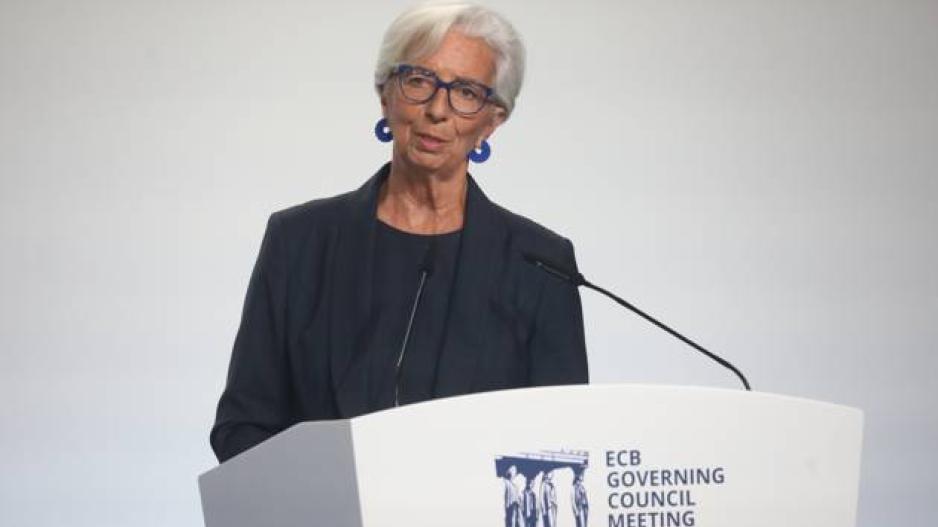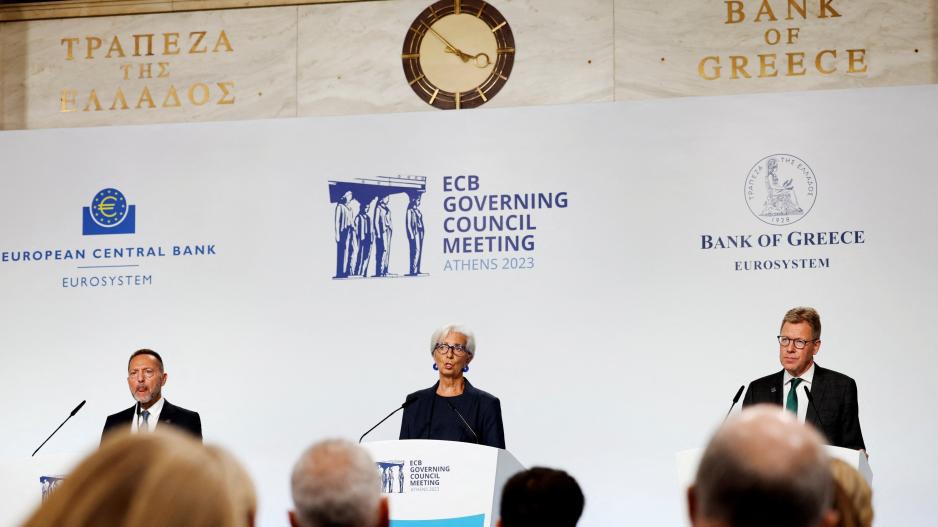ECB Holds Interest Rates Steady Amid Varied Economic Indicators
Highlights from the Governing Council Meeting in Athens
The European Central Bank (ECB) today announced its decision to keep key interest rates unchanged, amidst ongoing concerns over high inflation and weakening economic growth.
During a press conference held in Athens, ECB President Christine Lagarde, alongside Vice-President Luis de Guindos, reaffirmed the decision to maintain the main refinancing operations, the marginal lending facility, and the deposit facility rates at 4.50%, 4.75%, and 4.00% respectively. This decision comes despite inflation being projected to remain "too high for too long," with domestic price pressures persisting strongly.
As inflation saw a marked drop in September, attributed partly to significant base effects and underlying inflation measures continue to show signs of easing, Lagarde highlighted that prior interest rate hikes have been effectively integrated into the financing conditions, gradually curbing demand and helping to reduce inflation.
The euro area's economy, however, remains fragile. Manufacturing output is declining, and both the investment and consumer spending are hampered by subdued foreign demand and tightening financing conditions. The services sector is experiencing further weakening. Despite this, the ECB expects the economy to recover over the coming years as inflation eases, household incomes recover, and demand for exports increases.

The unemployment rate in the Euro area has been low, standing at 6.4% in August, but there are emerging signs of a slackening labor market. Lagarde emphasized the need for governments to withdraw support measures related to the energy crisis to avoid fuelling medium-term inflationary pressures.
The ECB's stance remains committed to bringing inflation back to its 2% medium-term target, asserting that current interest rate levels, if maintained, will substantially contribute to this objective. The Governing Council will keep adhering to a data-dependent approach for determining future monetary policy, ready to adjust its instruments to ensure a return to the target inflation rate and preserve the smooth transmission of monetary policy.
Furthermore, the ECB's asset purchase programme (APP) and pandemic emergency purchase programme (PEPP) are also undergoing changes, with a continued focus on flexibility and stability in the face of evolving economic challenges.
Lastly, the ECB's decision to hold rates steady underscores its cautious approach in navigating the choppy waters of a fragile economy and persistent inflation. While Lagarde asserted the determination to steer inflation towards the target, she acknowledged the intricate balance of fostering economic growth amidst prevailing uncertainties.






